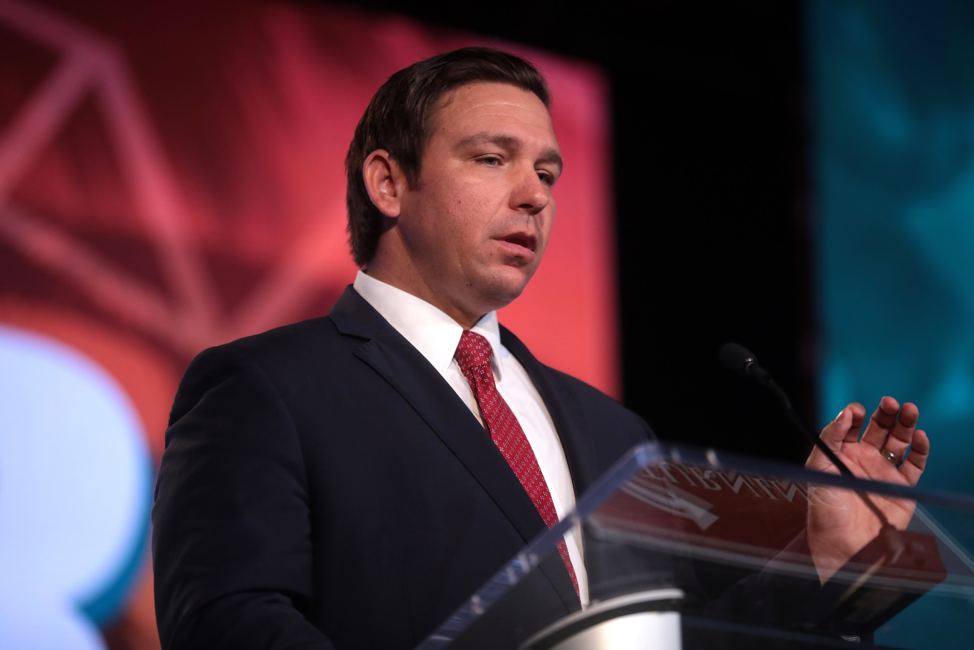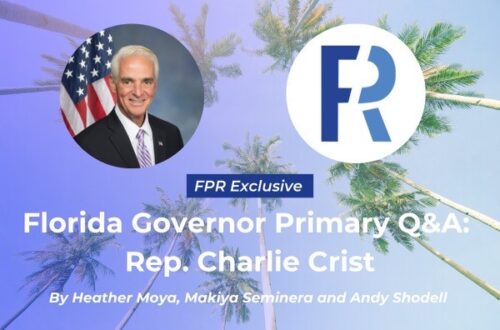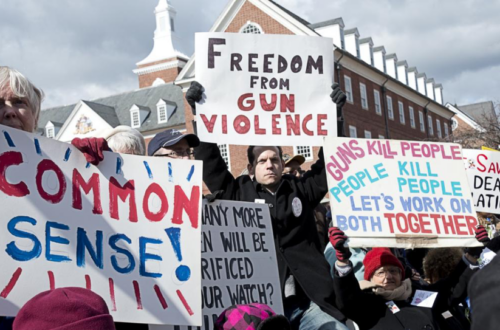Unemployed Floridians will no longer receive the $400 per week unemployment boost offered by President Trump’s August executive order because the state can no longer afford to support its side of the program.
The order stipulates that recipients will collect $400 weekly in “Lost Wage Assistance” if they already receive at least $100 weekly. The state pays 25% of the federal boost; however, states can count the minimum $100 payment as their share, thus reducing the extra benefits to $300.
Now, Florida can’t even cover that. Although neither Governor Ron DeSantis nor the Department of Economic Opportunity provided an official explanation, an administration official claims the state could no longer afford the benefits, according to Politico.
DeSantis also remarked before the announcement that the state lacked the capacity to keep accepting payments.
Although the state’s unemployment rate improved by four points in August, at 7.4% it still remains more than two and a half times higher than it was before pandemic lockdowns began in March. Out of the states and Washington DC, Florida remains 50th out of 51 as of October 1 in jobs recovered since the start of the crisis.
The state has managed to avoid a total economic catastrophe, but the suspension of federal unemployment money further jeopardizes what has thus far been a rocky recovery.
It is the second time in a matter of weeks that benefits have dropped significantly after the $600 weekly assistance from the Coronavirus Aid, Relief, and Economic Security (CARES) Act expired at the end of July.
“There has been a sense that the recovery that we have had so far has been largely funded by that $600 benefit,” Christopher McCarty, the director of the University of Florida’s Bureau of Economic and Business Research, told the Tampa Bay Times.
With the unemployment rate still unusually high and 368,000 people still collecting benefits, unemployed Floridians face rapidly increasing uncertainty and one of the weakest safety nets in the country. The state’s average weekly benefit without federal aid is just $232.04, which is the equivalent of just $5.80 per hour over a 40-hour work week.
Some Republicans wanted DeSantis to keep Trump’s Lost Wage Assistance program. Sen. Jeff Brandes, R-St. Petersburg, called upon the governor to utilize some of the state’s emergency reserves to cover the required 25%. The president himself suggested states could use unspent CARES Act relief money.
However, DeSantis and the Republican legislative leaders want to hold both the CARES Act money and state reserves to plug up holes in the budget rather than continue to support the unemployed.
Democrats have been much more vocal in their criticism. Sen. Annette Taddeo, D-Miami, said, “For people who claim we’ve got to get the economy going, guess what? One way to get the economy going is to make sure that people have food on the table and can pay their rent.”
Rep. Anna Eskamani, D-Orlando, has been calling for a special session since almost the beginning of the pandemic to address unemployment. She has also suggested the governor could raise maximum benefits from $275 to an amount that can cover the cost of living, but his administration has rejected that idea.
DeSantis, meanwhile, hopes to ameliorate unemployment by reopening the economy in full. With COVID-19 cases in the hundreds of thousands and the death toll north of 14,000, the move is a bold attempt to jumpstart the state’s service and tourism-based economy and recover the jobs lost.
“We’re not closing anything going forward,” he said in a press conference Friday when he announced the start of phase 3 of reopening. Restaurants and gyms may now open at full capacity, non-essential travel may resume, and theme parks and sporting events may resume with “limited social distancing protocols.”
Phase 3 also prohibits city and county governments from ordering businesses to close or enforcing mask mandates with fines.
If DeSantis’s reopening gambit pays off, the unemployment crisis will come to an end in time. Yet the recovery thus far has been tumultuous, and for the 368,000 Floridians still depending on unemployment insurance, money will become even tighter in the days to come.
Featured image: Ron DeSantis at a conservative youth event in 2018. Unmodified photo by Gage Skidmore used under a Creative Commons license. (https://bit.ly/3j89Xsz)
Check out other recent articles from the Florida Political Review here.






2 Comments
Katrina Lee
Why are Florida unemployed workers paid under minimum wage don’t you think it cost more to live the federal money is needed the eviction rate will rise we need a new governor in florida he is not advocating for American people
Kevin Avera
This is absolutely deplorable. Any official that advocates punishment of those who lost their jobs through no fault of their own. Should lose THEIR jobs and be forced to make due on ONLY the minimum.